SJF<Work & Life Balance> #2
Anna Lee (Musician and Literary Comparatist)
Anna Lee is a violinist, sometimes singer, and recent graduate of Harvard College, where she studied Comparative Literature. She loves music, word puns, dancing, and laughing loudly, and is grateful that her job nnecessitates travel allowing her the privilege of seeing so many beautiful aspects of life—because otherwise, she would probably be very happy to stay in bed all day, lost in a book. Anna Lee believes in the necessity of music and the arts, and is on a mission to provide access to a holistic and interdisciplinary music education for all, regardless of socio-economic background.
바이올리니스트 애나리는 때때로 가수로 활동하며, 하버드 대학에서 비교문학을 전공하여 최근에 졸업했다. 그녀는 음악과 춤을 사랑하고 유머를 즐기며 큰 소리로 웃는 것을 좋아한다. 연주여행을 다니며 다양하고 아름다운 세상을 볼 수 있는 것에 감사하지만, 또한 하루 종일 책에 파묻혀 침대에서 뒹구는 것도 좋아한다. 애나리는 사람들의 삶에 있어서 음악과 미술의 중요성에 깊이 공감하며, 사회경제적 배경과는 상관없이 누구나 전인적이고 종합적인 음악교육을 받을 수 있도록 노력하고 있다.
Work-Life Balance <일과 삶의 밸런스>
Honestly, I’m not sure that there really is a thing as work-life balance—not in a static sense, anyway. Like a tightrope walker, I think that balance is actually a continual motion from one side to the other, and that movement is what we call balance. In addition, the idea of work has changed a lot for me now because of the COVID-19 pandemic; where before, work was practicing, traveling for concerts, rehearsing, performing, and sometimes going to post-concert receptions or meeting with people, work now is primarily practicing, writing too many emails, video chatting other musicians, and live-streaming a short program occasionally. It is a very strange world that we are entering, especially for the arts/entertainment industry, because the live experience is such an important part of what we do. But as with all balances, I’m finding ways to keep my heart full, my body rested, and my mind excited: strengthening and challenging my relationship with my violin through different repertoire and techniques, keeping in touch with my friends and family, taking Pilates/Martha Graham/Feldenkrais classes, teaching virtual violin lessons, doing research to see what the future of concerts might hold, volunteering as an English tutor, and watching a lot more Netflix than I used to.
솔직히 말하자면, 나는 일과 삶의 밸런스라는 것이 단정적인 의미에서 존재하는지 잘 모르겠다. 내가 생각하기에 균형이라는 것은 아슬아슬하게 줄타는 곡예사처럼 이쪽 저쪽을 계속 움직이는 것이 아닌가 싶다. 갑작스러운 코로나사태로 인해 그동안 내가 생각해 오던 “일”이라는 개념에 많은 변화가 생겼다. 예전 같으면 나는 바이올린 연습을 하고 연주여행을 다니고, 리허설과 연주회 그리고 연주 후 리셉션 등을 하며 많은 사람들을 만났을 것이다. 하지만 지금은 연습을 주로 하며, 많은 이메일을 쓰고, 비디오 채팅으로 사람들을 만나며 이따금 짧은 라이브 방송을 하곤 한다. 모든 분야들이 예기치 못한 새로운 상황에 맞닥뜨렸지만 라이브 경험이 중요한 예술 산업은 훨씬 더 그런 듯하다. 그러나 나는 몸과 마음이 편안하고 즐거우면서도 균형을 지켜 나갈 수 있는 나만의 방법을 찾아가고 있다. 다양한 연주 레퍼토리 개발과 기술로 바이올린 연습에 더 집중하고, 가족 및 지인들과 꾸준히 연락하며 필라테스를 하거나 Matha Grahams과 Feldenkrais의 수업을 듣는다. 온라인으로 바이올린 레슨을 하고 미래의 콘서트와 관련된 리서치도 하며 영어를 가르치는 자원봉사도 한다. 또한 예전보다 넷플릿스도 많이 보면서 지낸다.
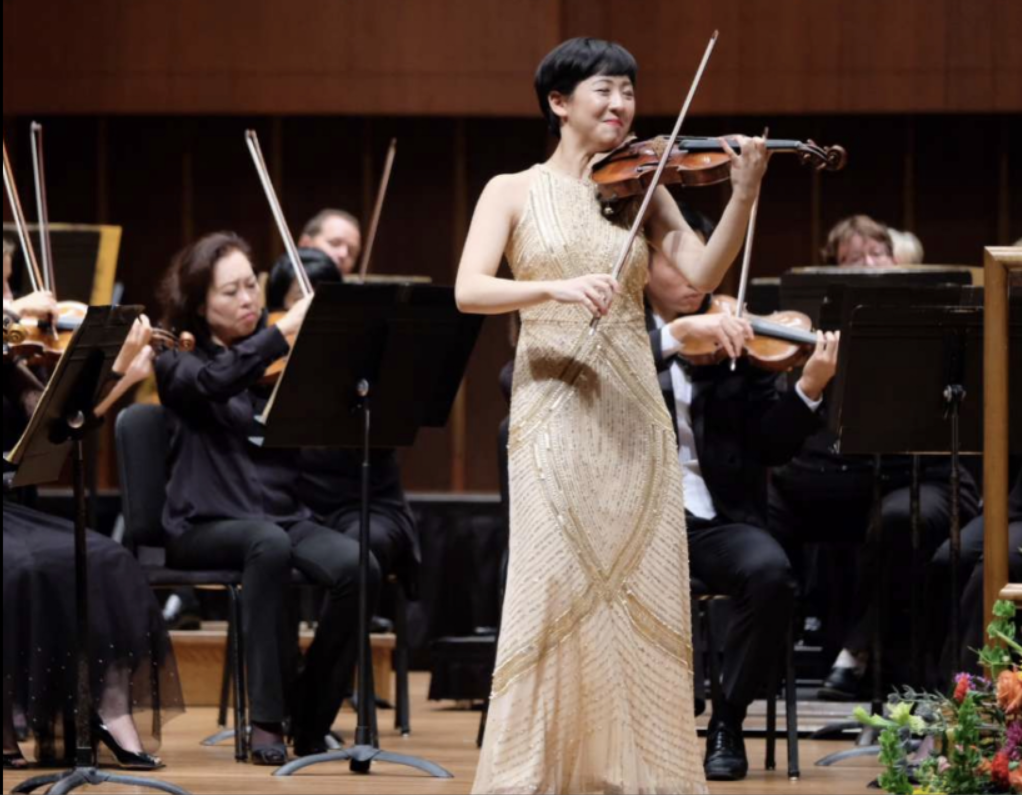
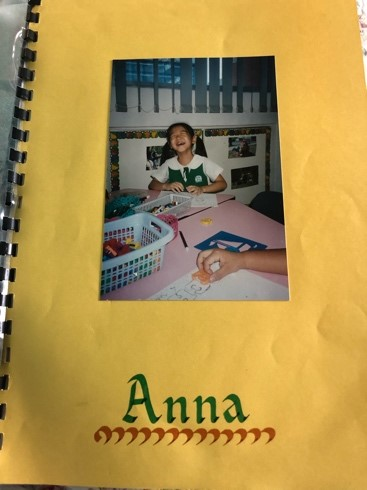
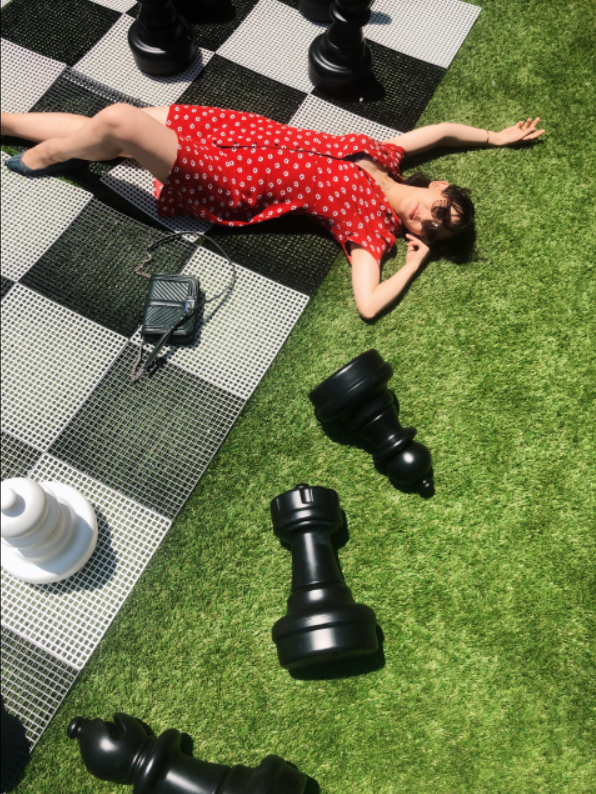
Balancing two ‘jobs’ <두가지 일의 균형>
I often get quizzical or even disbelieving reactions when people find out that I chose to study academics (that is, pursue a liberal arts degree) even though I am a professional musician. The answer to that is simple: I really love learning and being challenged in an academic environment, and I was extremely lucky to have the opportunity! Majoring in Comparative Literature made the most sense for me because Comparative Literature is an interdisciplinary discipline—it is a field which not only allows but actively encourages studies of multiple languages, multiple types of literature, and even multiple mediums and fields (e.g. film, music, healthy policy, etc). Recently, I wrote a thesis exploring the philosophical and cultural link between music and poetry and translated German poems to English.
While it may seem like academics and performance don’t go hand in hand, I strongly believe that the two inform and enrich the other. In other words, studying literature and culture inspired and encouraged me even more to continue performing and to actively advocate for the arts. The 'work’ that I did during my studies—wrestling with the meanings, roles, and consequences of literature and music—affirmed and augmented my love for performing as well as my conviction that the arts are absolutely necessary for human thriving. One of my favorite poems is also a song, and I think it really beautifully reflects how comforting and healing the arts are.
사람들은 왜 전문 연주가인 내가 음악이 아닌 인문학 공부를 하고 학위를 받았는지에 대해 종종 질문을 한다. 내 대답은 간단 명료하다. 나는 학문적인 환경에서 새로운 것에 도전하기를 좋아한다. 학문들의 융합으로 언어, 문학, 영화, 음악, 건강 정책 등 다양한 분야들을 여러 방법으로 공부하였다. 최근에 나는 음악과 시의 철학적, 문화적 연결고리에 관한 졸업논문을 작성하였고 그 과정에서 독일 시들을 영어로 번역했다.
내 학문과 음악연주가 직접 상관이 없을 수도 있지만 나는 이 두 분야가 서로를 더욱 더 풍부하게 해주는 상호작용을 한다고 생각한다. 즉, 문학과 문화를 공부하는 것이 나에게는 음악적인 영감을 더 주고 감정적으로 더 풍부한 연주를 하게끔 한다. 내가 공부하는 동안 “일” 이라는 것은 음악과 문학의 의미와 역할, 그 결과물들의 도출을 위해 고군분투하는 과정이었고, 연주자 로서의 음악에 대한 열정을 확인하고 예술의 필요성을 재확인하는 시간이었다. 내가 가장 좋아하는 시 중 하나는 노래가사이기도 한데 예술이 우리에게 얼마나 많은 위로와 위안을 주는지를 아름답게 표현하였다.
“An die Musik”
Du holde Kunst, in wieviel grauen
Stunden,
Wo mich des Lebens wilder Kreis
umstrickt,
Hast du mein Herz zu warmer Lieb’
entzunden
Hast mich in eine bess’re Welt entrückt!
Oft hat ein Seufzer, deiner Harf
entflossen,
Ein süsser, heiliger Akkord von dir,
Den Himmel bess’rer Zeiten mir
erschlossen,
Du holde Kunst, ich danke dir dafür!
-Franz von Schober (song by Franz
Schubert)
“To Music”
You, beloved art, oh in what long, grey
hours,
When life’s fierce coil entangles around
me,
Have you enslaved my heart to a
swelt’ring love,
And raptured me off to a better world!
Often has a sigh, escaping from your
harp,
A sweet, holy harmonious chord from
you,
Opened up to me the heav’n of better
times,
You, beloved art, for this I thank you!
-translation by Anna Lee
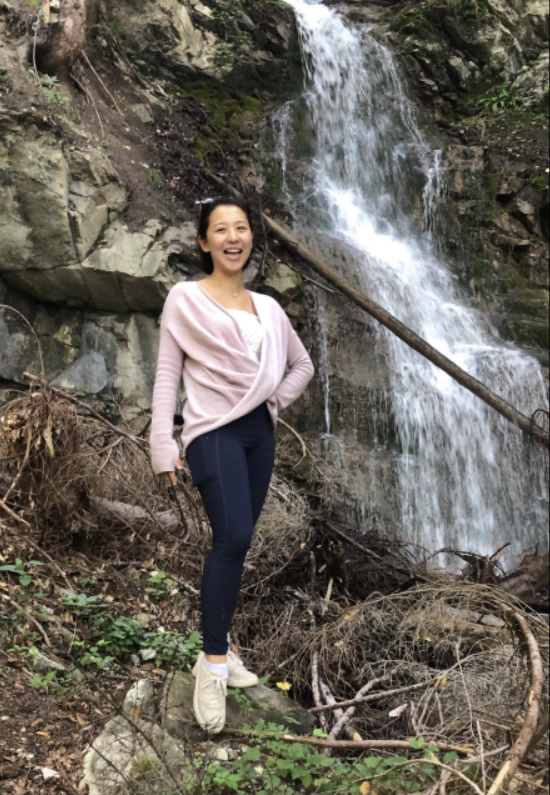
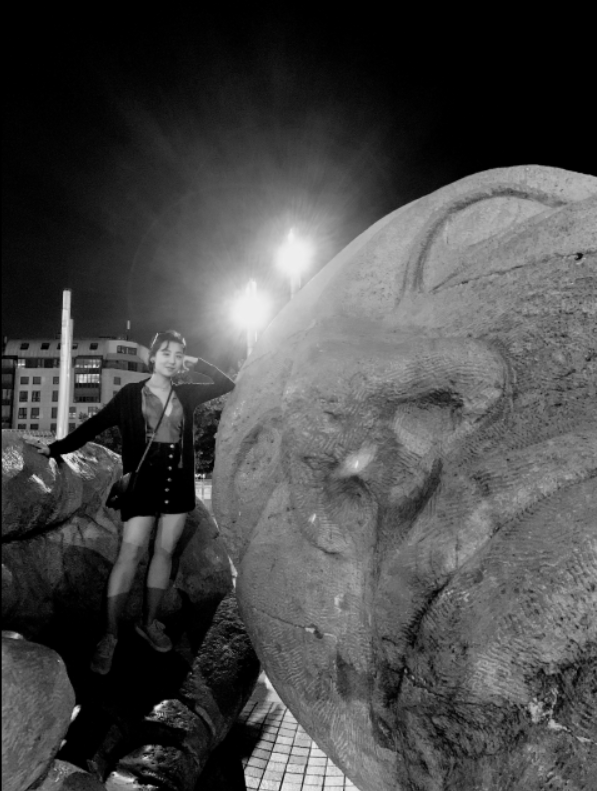
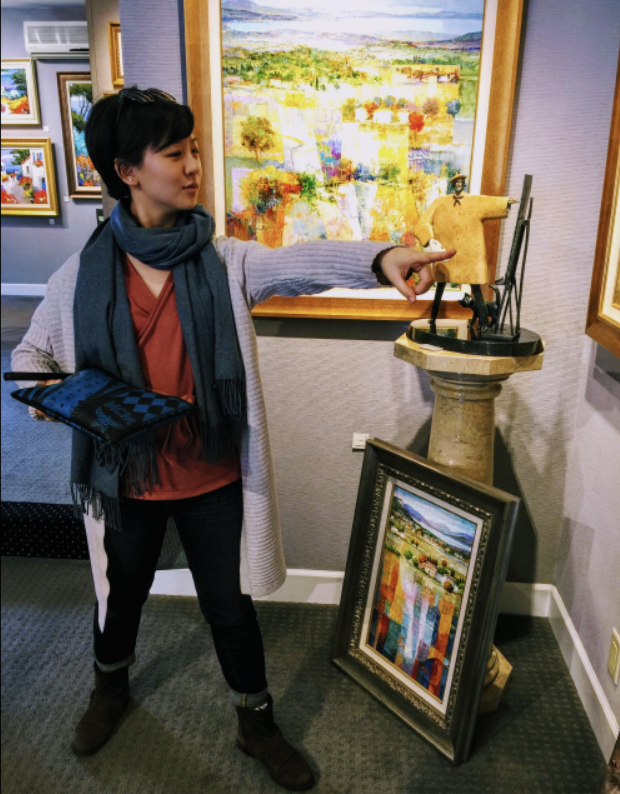
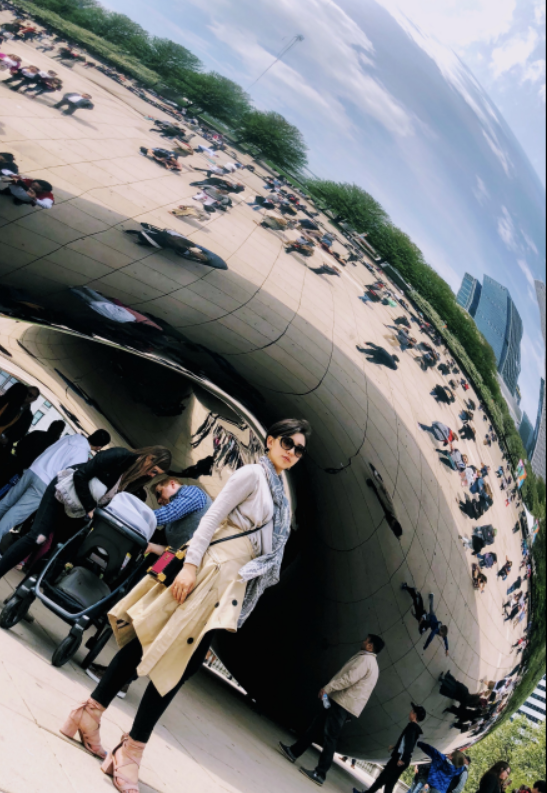
Work & Identity <일과 자아>
Because I started performing professionally when I was 6 years old, I didn’t realize until I was in my early 20’s that my identity wasn’t only being a violinist. Even to this day, it is often difficult to extricate my violin from me—I guess you could say that it’s kind of like being married (from what people tell me anyway)! After all, when you spend so much of your waking moments communicating with one other being, you develop a deep bond that can best be described as an intense relationship. The first time that I took a break from playing for 5 days, I was so lucky to be in Paris but couldn’t really focus on being there because I was so distracted about the idea of not playing my violin for a few days. (Although that didn’t stop me from eating multiple fruit tarts and chocolate éclairs every day... On second thought, maybe I ate so many of those because I was upset at being separated from my violin?!)
무대에서 연주를 시작한 6살부터 20대 초반까지는 바이올린 연주자이외의 나의 다른 모습에 대해 생각해 본적이 없었다. 요즘도 바이올린이 없는 나를 상상하기 힘들다. 소위 사람들이 말하는 결혼에 빗대어본다면, 바이올린과 결혼했다고 할 수 있을까? 깨어 있는 시간 중 대다수의 시간을 상대방과 많은 대화를 나누고 교감을 가지다 보면 어느 순간 끈끈한 유대감과 진한 애착이 형성되는 것처럼 말이다. 처음으로 5일이라는 긴 시간동안 바이올린과 멀어져 있었던 때는 운 좋게도 파리 여행중이었지만, 바이올린을 연주 못한다는 생각에 파리를 충분히 즐길 수가 없었다. (맛있는 타르트와 에끌레어를 멈추지 않고 계속 먹으면서도 혹시 내가 바이올린을 연주하지 못해 스트레스 받아서 이렇게 많이 먹나보다 생각할 정도였다.)
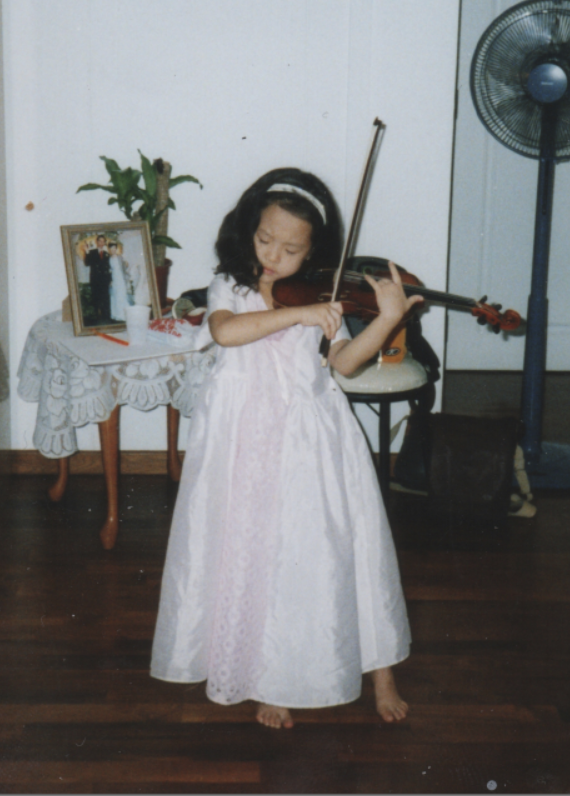
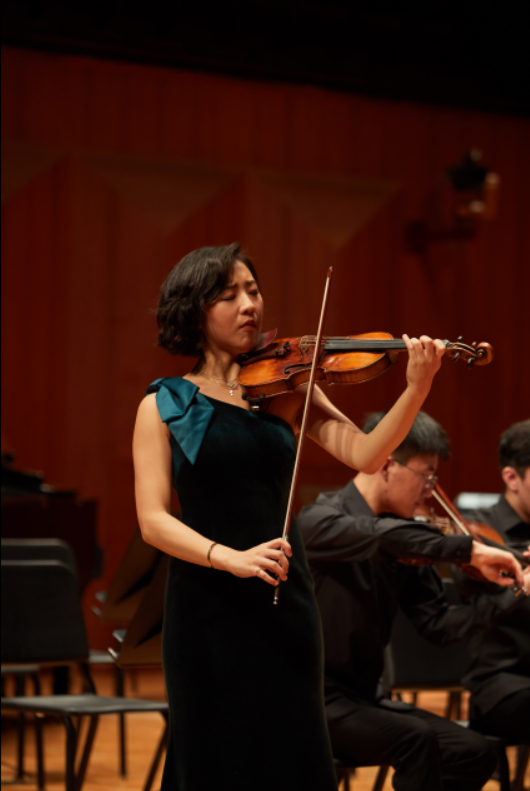
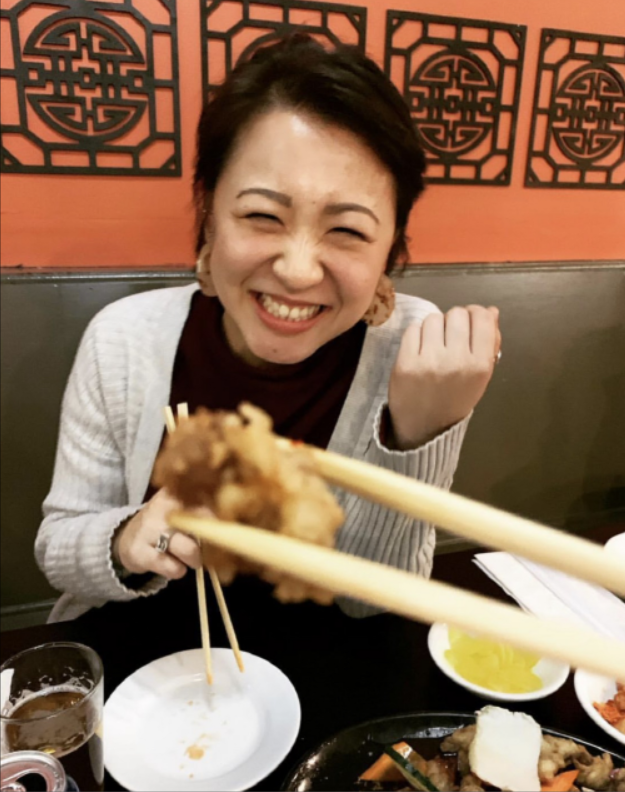
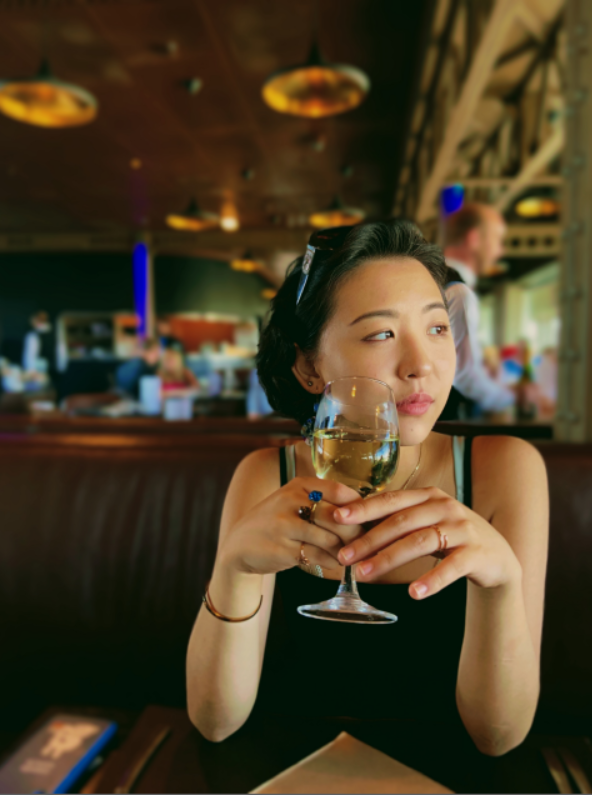
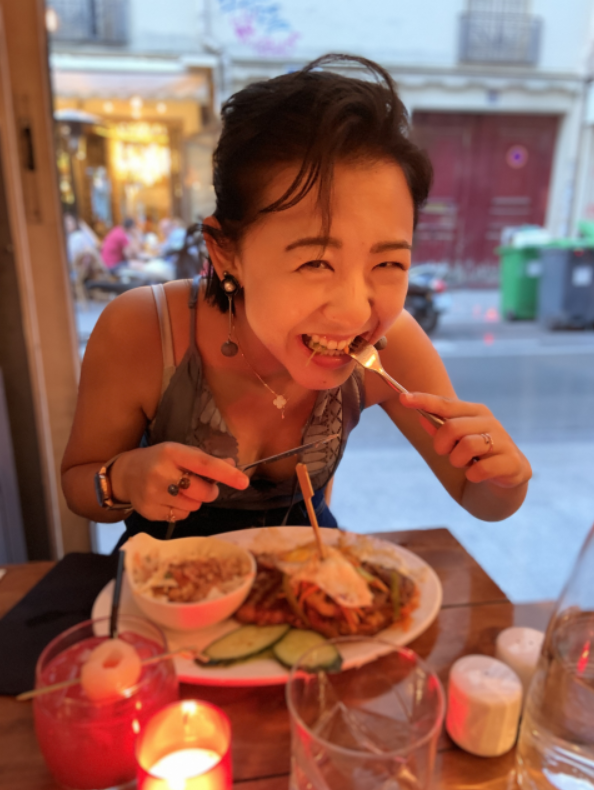
(Okay I’ll admit it, I just really love eating. And drinking.)
Family, Friends, and the Wholeness of Life <가족, 친구 그리고 내 삶의 전체성>
Thankfully, my family and close friends are some of the funniest and most grounded people I know; they keep me from taking myself too seriously and from my head disappearing into the clouds! And while my friends and family often tease me of being quite ‘old-fashioned’, I am extremely grateful for the incredible technology that allows us to video chat and text because without those means, it would be extremely difficult to keep in touch with my loved ones! At the same time, nothing beats meeting up in person—so whenever possible, I try to give myself an extra day before or after a trip to see my family or friends on my way home. Sometimes, I’ve only had 48 hours to see my family (which my sister likes to remind me of when she thinks I am not paying enough attention to her); this can be extremely difficult but I am grateful that those days are filled with lots of laughter and delicious food (thanks to my mum). And sometimes, all the stars align and I am able to see those I love more often than I expect. Two years ago, I was lucky to be able to see one of my best friends three times in one year, even though we live on opposite coasts of the US (she in San Francisco and I in Boston/New York): once on my way from New York to Seoul I made a layover in SF, then when I was in Los Angeles for a work meeting she came down to see me, and then I was able to stay in SF for a few days before driving down to La Jolla for a summer festival.
정말 감사하게도 내 가족과 친구들은 현실적이고 유머가 풍부한 사람들이다. 그래서 내가 너무 심각해지거나 뜬구름을 잡을 때 중심을 잘 잡을수 있도록 도와준다. 친구나 가족들은 나보고 구식이라고 놀리기도 하지만 친구들과 비디오 콜이나 채팅도 하며 지낼 수 있는 디지털 채널이 개발되어 매우 감사하며 시간을 보내고 있다. 이런 기술이 없었더라면 사랑하는 지인들과 연락이 힘들었을 것이다. 물론 가능하다면 직접 만나는 것이 제일 좋기는 하지만. 나는 여행 전후 집에 돌아가는 길에 하루 이틀정도 시간적 여유를 두고 친구나 가족을 만나려고 노력한다. 가족과 함께 할 시간이 48시간 밖에 없을 때도 그렇다. (그럼에도 불구하고 내 여동생은 내가 가족들에게 신경을 적게 쓴다고 한다.) 주어진 시간안에서 충분히 가족들과 함께 웃으며 엄마가 해주는 맛있는 음식을 아주 즐긴다. 가끔은 예상하지도 못한 사랑하는 지인들을 더 자주 보게 되는 경우도 있다. 2년전에는 미국에서 동서부로 떨어져 살고 있는 제일 친한 친구를 일년에 세번이나 볼 수 있는 기회가 생겼다. 친구는 샌프란시스코에 살고 나는 주로 뉴욕과 보스턴에 거주하는데, 뉴욕에서 서울 가는 길에 샌프란시스코에서 환승하면서 친구를 만날 수 있었고 또 한번은 내가 LA에서의 회의에 참석할 때 친구가 나를 보러 LA까지 왔다. 그 이후에는 라홀라에서 열리는 여름 축제에 가기 전에 샌프란시스코에 며칠 머무르며 친구와 시간을 보내기도 했다.
I also feel extremely lucky that most of my co-workers are my friends; a wonderful part of being a traveling musician is that at each festival or concert, I get to play with friends I haven’t seen in a while. And playing with different musicians keeps my heart inspired and my ears fresh... everyone has their own voice and style, so I have to listen and feel carefully in every rehearsal and concert. I have often self-identified with the stereotype of the diva, or the stubborn, high-strung artist—while not wrong, I‘ve actually come to realize that musicians are some of the most articulate and collaborative people I know. From a young age, we learn to listen carefully to what others have to say and to the smallest nuances that can make a surprising difference. All this to say, I suppose it comes as no surprise that sometimes, my work and life feel almost impossible to separate. My first violin teacher used to tell me that “music is life, and life is music”, and it certainly feels that way sometimes, but I’ve also experienced that for me, music is a reflection of life, and sometimes, life a reflection of music.
대다수의 동료들이 나의 친구라는 사실에 매우 감사한다. 연주자로서 좋은 점은 그들과 연주여행을 다니며 함께 연주하고 삶의 아름다운 부분을 나눌 수 있다는 것이다. 다른 동료 음악가들과 협연은 나에게 많은 영감을 주며 매번 새로움을 느끼게 한다. 다들 각자의 연주 스타일이 있기에 나는 리허설때마다 다른 연주가들의 연주를 굉장히 열심히 듣고 느끼려 한다. 어떻게 보면 나는 고집이 세고 정형화된 디바 이미지에 갇힌 자존심 센 바이올린 연주자라는 생각이 들지만, 좋은 연주자란 음악을 정확히 표현하면서 협업을 잘 하는 사람들이라고 생각한다. 어렸을 때부터 다른 사람들의 충고를 잘 들어야 한다고 배워왔고 그 작은 충고가 나를 놀랄 만큼 변화시킬 수 있다고 본다. 이렇듯, 내 일과 삶을 분리하여 생각하는 것 자체가 불가능하다. 내 첫 바이올린 선생님은 나에게 “음악은 삶 자체이고 삶은 곧 음악이다” 라고 하셨다. 나는 이 말에 전적으로 동의하지만 요즘은 음악이 내 삶에 투영되며, 또한 내 삶이 음악에 투영되고 있음을 느끼며 살고 있다.
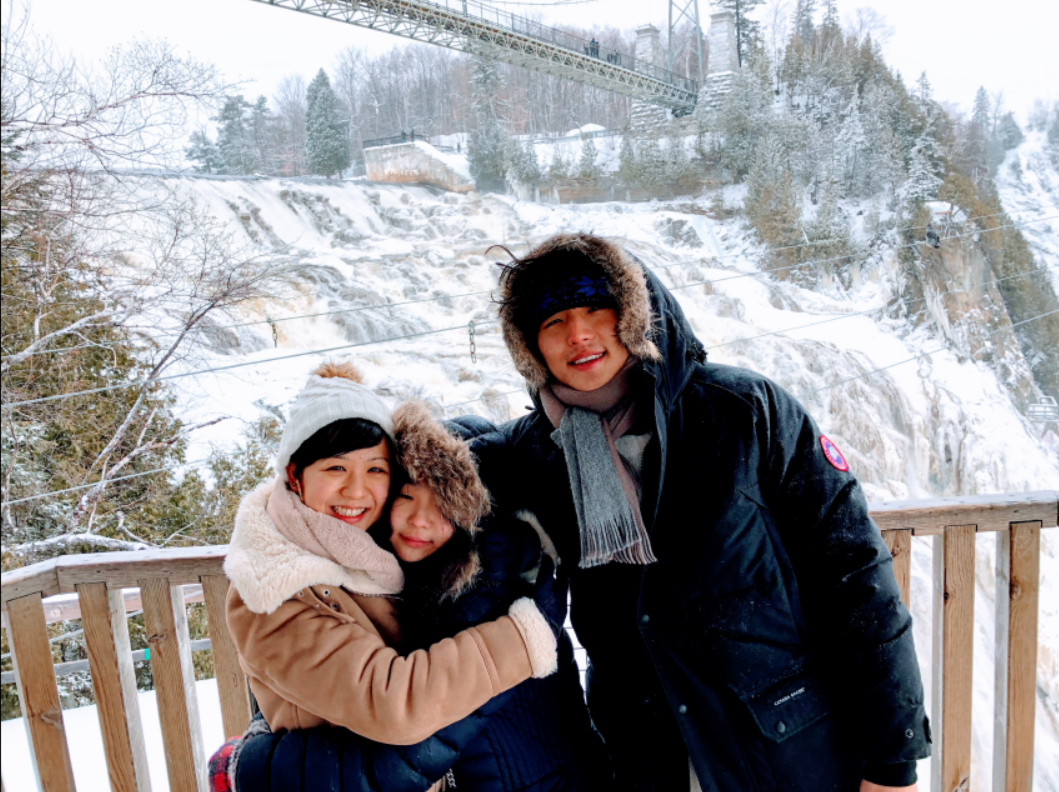
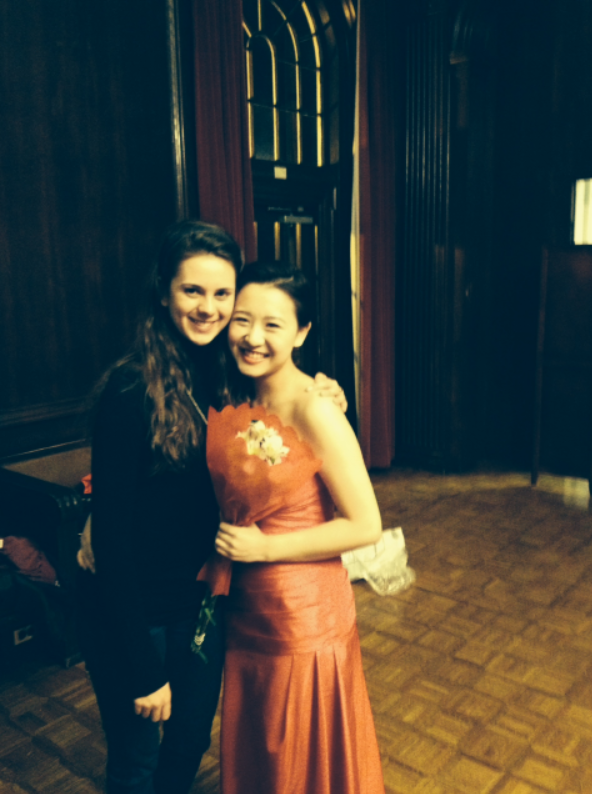
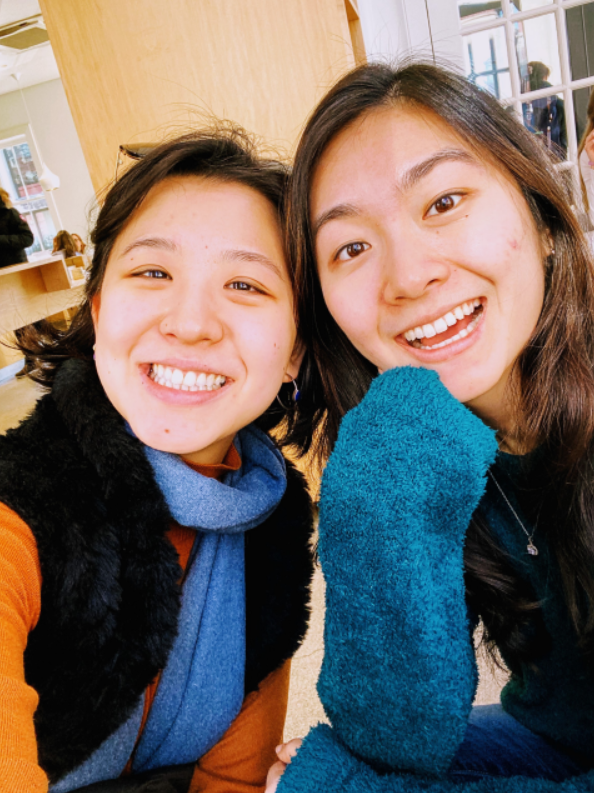
Left: Anna Lee, her sister Hepsiba, and their brother MyungIn
Middle and Right: My best friends Lilly Riveron and Joanna Chung
by Anna Lee











